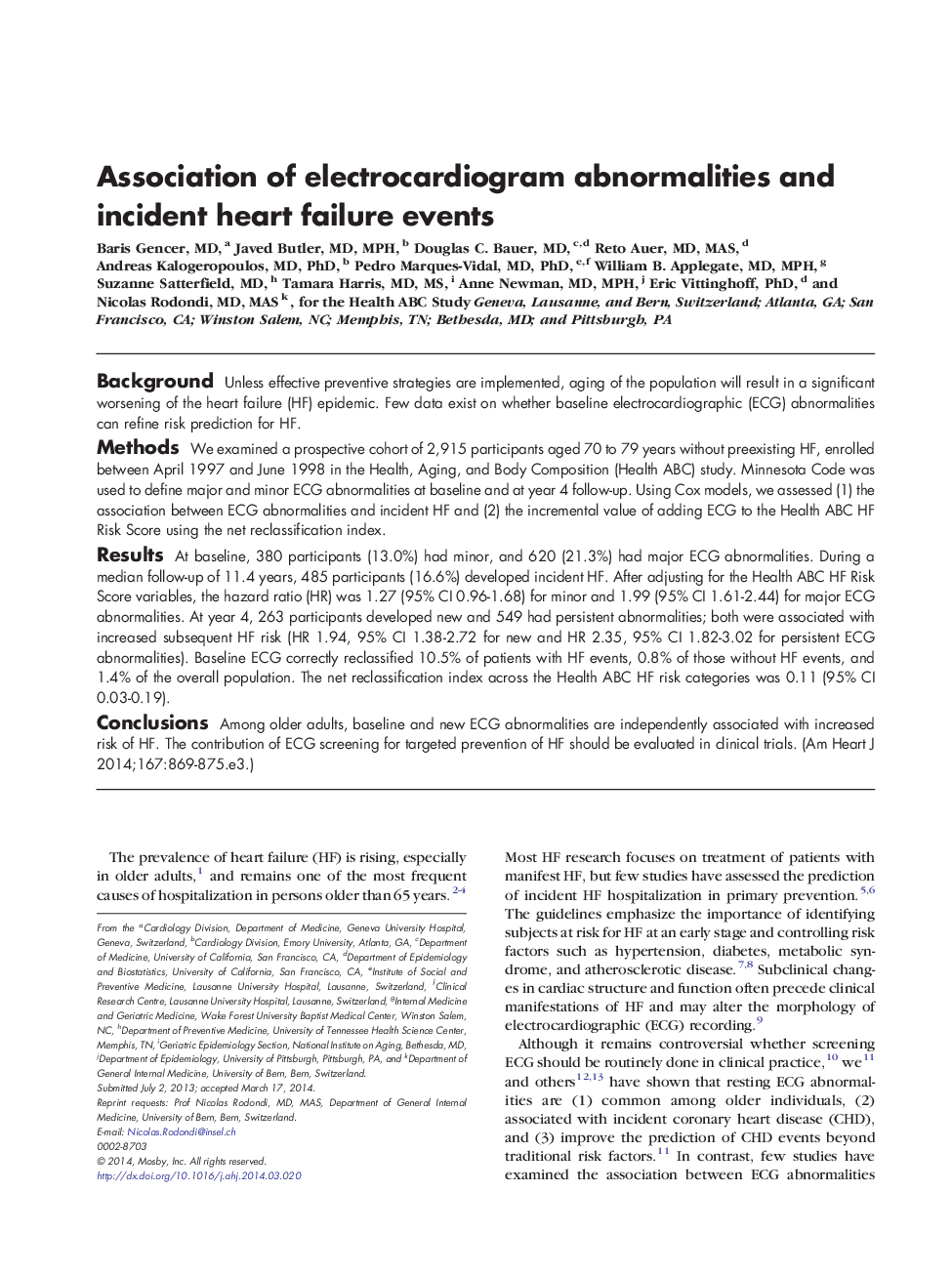| کد مقاله | کد نشریه | سال انتشار | مقاله انگلیسی | نسخه تمام متن |
|---|---|---|---|---|
| 5926964 | 1167659 | 2014 | 10 صفحه PDF | دانلود رایگان |
BackgroundUnless effective preventive strategies are implemented, aging of the population will result in a significant worsening of the heart failure (HF) epidemic. Few data exist on whether baseline electrocardiographic (ECG) abnormalities can refine risk prediction for HF.MethodsWe examined a prospective cohort of 2,915 participants aged 70 to 79 years without preexisting HF, enrolled between April 1997 and June 1998 in the Health, Aging, and Body Composition (Health ABC) study. Minnesota Code was used to define major and minor ECG abnormalities at baseline and at year 4 follow-up. Using Cox models, we assessed (1) the association between ECG abnormalities and incident HF and (2) the incremental value of adding ECG to the Health ABC HF Risk Score using the net reclassification index.ResultsAt baseline, 380 participants (13.0%) had minor, and 620 (21.3%) had major ECG abnormalities. During a median follow-up of 11.4 years, 485 participants (16.6%) developed incident HF. After adjusting for the Health ABC HF Risk Score variables, the hazard ratio (HR) was 1.27 (95% CI 0.96-1.68) for minor and 1.99 (95% CI 1.61-2.44) for major ECG abnormalities. At year 4, 263 participants developed new and 549 had persistent abnormalities; both were associated with increased subsequent HF risk (HR 1.94, 95% CI 1.38-2.72 for new and HR 2.35, 95% CI 1.82-3.02 for persistent ECG abnormalities). Baseline ECG correctly reclassified 10.5% of patients with HF events, 0.8% of those without HF events, and 1.4% of the overall population. The net reclassification index across the Health ABC HF risk categories was 0.11 (95% CI 0.03-0.19).ConclusionsAmong older adults, baseline and new ECG abnormalities are independently associated with increased risk of HF. The contribution of ECG screening for targeted prevention of HF should be evaluated in clinical trials.
Journal: American Heart Journal - Volume 167, Issue 6, June 2014, Pages 869-875.e3
